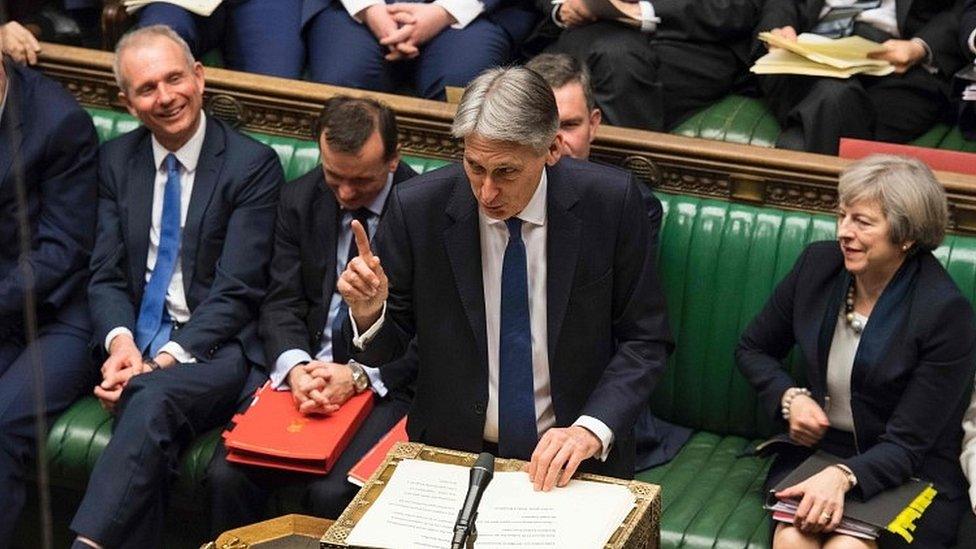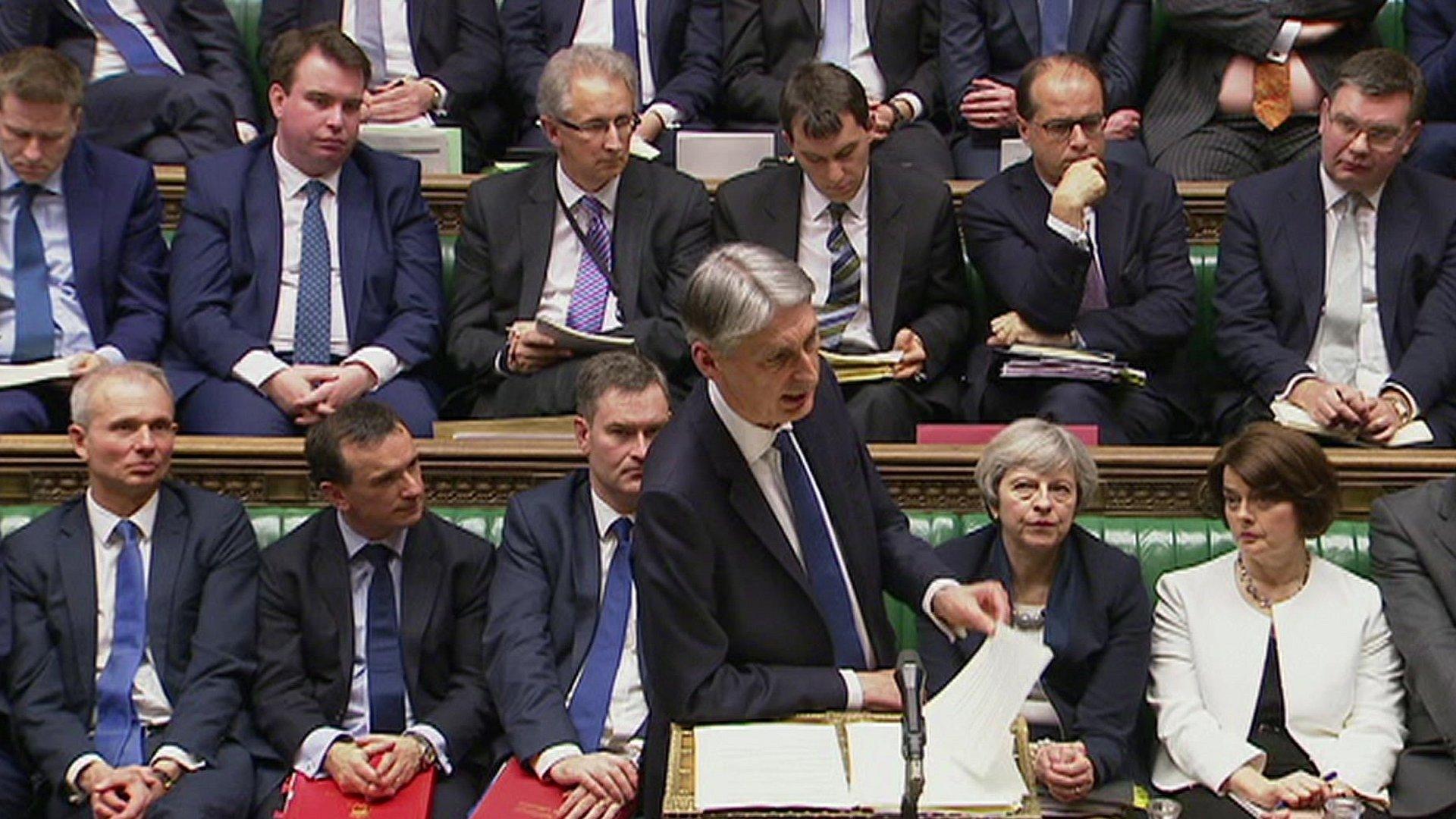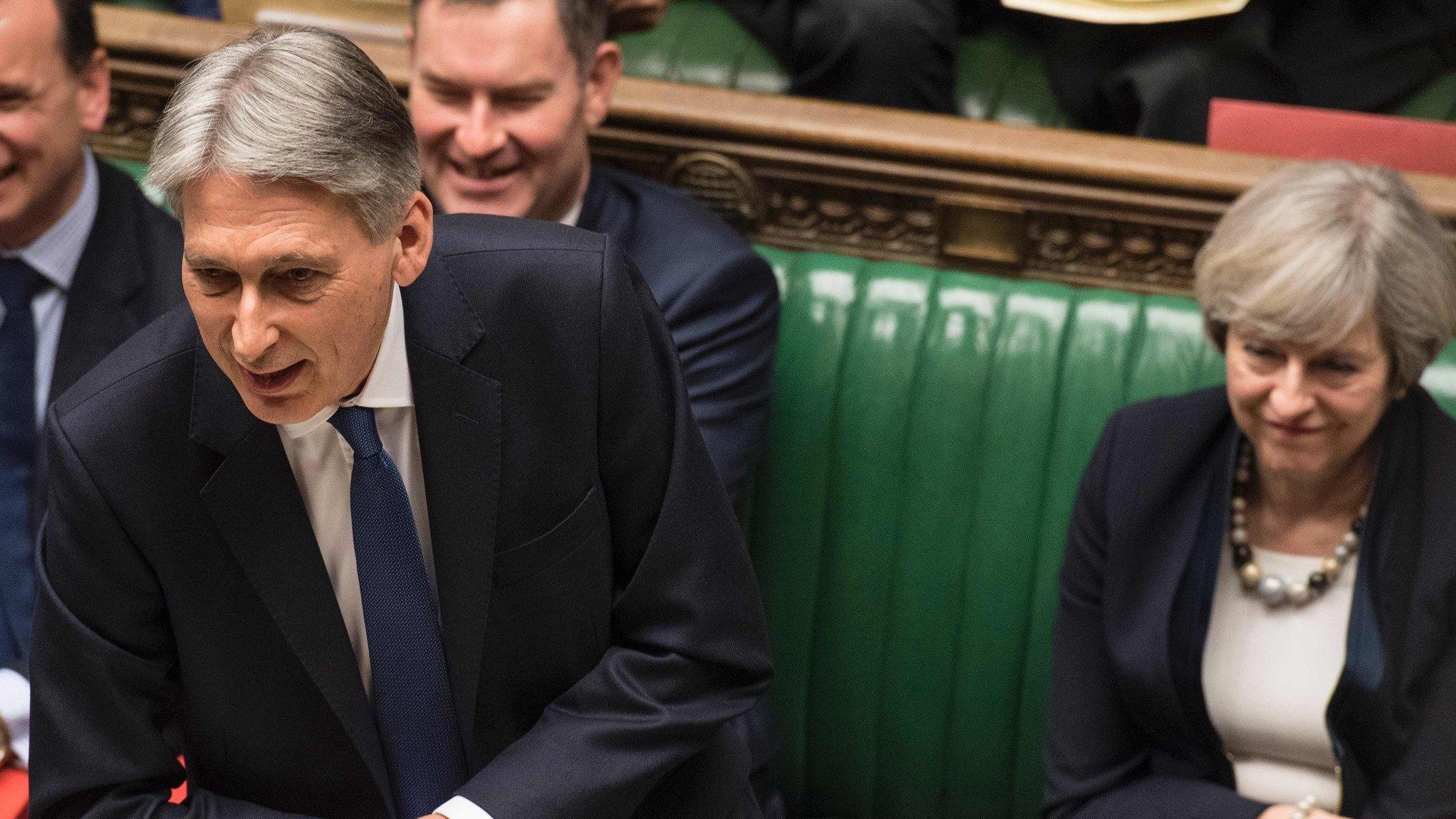A safety first Budget - but does it stack up?
- Published

He gave modestly with one hand, and took away modestly with the other.
In any Budget there are winners and losers, and the same set of policies and statistics look very different through alternative political lenses.
Much of Philip Hammond's Budget played out pretty much as expected - a cash increase for social care in England to ease the creaking system, with a promise of a longer term shake-up. There's a slightly more cheery picture of the economy than was predicted in the autumn.
Some extra cash is on the table for firms who were worried about being slammed with significant rises in their business rates. Smokers and drinkers won't have to pay any more than already planned for fags or booze.
And there were glimpses of Theresa May's hoped for meritocracy. Measures for schools, technical education, investment in technology, measures to prepare the country for a life outside the European Union and a revealing line from Philip Hammond that "talent should be the only driver of opportunity".
The chancellor repeatedly emphasised that it is a government that says it is preoccupied by 'fairness' with ministers oft-quoted promise of a "country that works for everyone".
But does that stack up? The overall picture might be slightly healthier in the government's giant balance sheets but it is still extremely challenging - hardly a land of milk and honey. And that slightly cheerier fettle in the forecasts is very different to the public feeling any better off.
With inflation looming, existing benefit freezes, and pay freezes in the public sector, the chancellor and prime minister's hope of a country where ordinary families feel better off can't be guaranteed.
Labour has immediately branded the Budget "scandalous", with the increases to cash for social care and capital spending for the NHS they believe nowhere good enough.
And the government is in rather a lot of bother over its manifesto promise not to raise National Insurance contributions which was broken, at the very least in spirit, by the chancellor today. The Treasury's technical explanation is that the law that was passed after the general election specified only that Class 1 National Insurance would not be raised.
They are raising Class 4 payments for self-employed people, so (very) strictly speaking, it's not a breach of trust.
Whether this blows up into a wider political row depends on the concern on the Tory benches - there are a few signs of that already - as well as the actual hit to people's wallets, not predicted to be that big, and the appetite and ability of the Labour Party to make the case against.
Budgets can change the political context overnight. This wasn't one of them. That doesn't mean however the government will escape unscathed.
- Published8 March 2017

- Published8 March 2017
